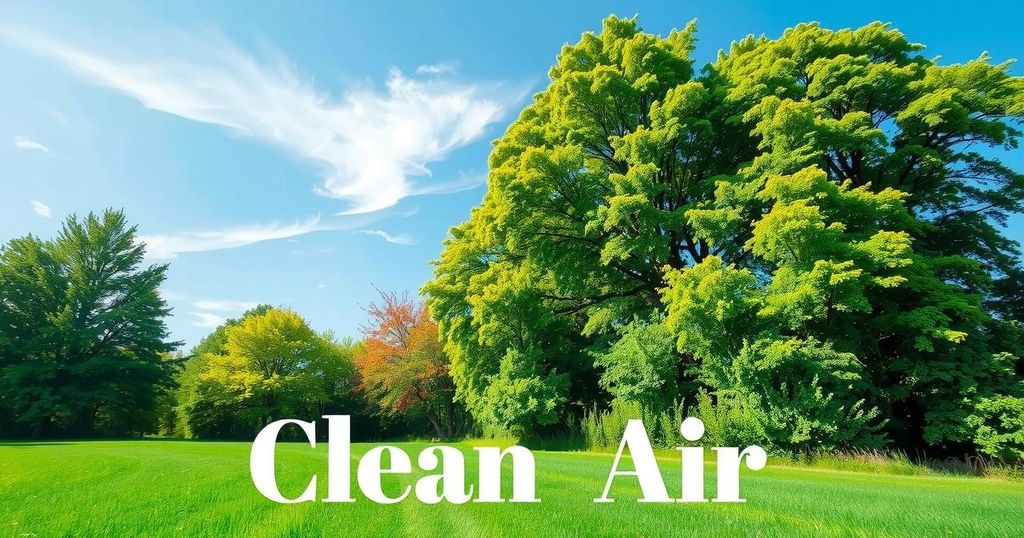Global Call to Action: 47 Million Demand Urgent Measures to Combat Air Pollution and Protect Health

Over 47 million individuals have signed a global call for urgent action against air pollution and its health impacts. This movement, led by the WHO, resonates with the need for evidence-based interventions coinciding with the Second Global Conference on Air Pollution and Health in March 2025. Key commitments from nations are anticipated to enhance air quality and address the burdens linked to noncommunicable diseases.
In a significant global movement, over 47 million individuals, including health professionals and civil society members, have united to demand decisive action against air pollution and its detrimental effects on health. Recognized as a prominent environmental threat, air pollution contributes annually to approximately 7 million fatalities, primarily due to respiratory and cardiovascular diseases.
This collective appeal will be presented at the Second Global Conference on Air Pollution and Health, scheduled for March 25–27, 2025, in Cartagena, Colombia. Dr. Tedros Adhanom Ghebreyesus, Director-General of the World Health Organization (WHO), emphasized the necessity for immediate, evidence-based interventions to combat air pollution.
Dr. Tedros stated, “Forty-seven million people from the health community have issued a clarion call for urgent, bold, science-driven action on air pollution, and their voices must be heard.” He intends for the conference to yield concrete commitments from nations to implement essential strategies that will enhance public health.
The conference will host diverse stakeholders, including political leaders, UN agencies, and representatives from civil society organizations, aimed at promoting a global clean air agenda. This initiative focuses on the dual objective of fostering public health benefits and addressing climate change.
In response to the significant impacts of air pollution, the health community urges governments to implement ambitious measures to reduce emissions and enforce stringent air quality regulations. Attention will also be directed towards air pollution at the 2025 UN High-Level Meeting on noncommunicable diseases (NCDs), which are significantly influenced by poor air quality.
Dr. Maria Neira, WHO’s Director for Environment, Climate Change, and Health, advocates for a collective transition from coal to renewable energy, implementing low-emission zones, and enhancing public transport systems. She noted, “While the challenge is immense, progress is possible. Many cities and countries have significantly improved air quality by enforcing stricter pollution limits. Clean air is not a privilege; it is a human right as recognized by the UN General Assembly.”
The forthcoming commitments at the conference and the UN High-Level Meeting will be pivotal in establishing a healthier and sustainable future. It is imperative to elevate efforts towards achieving cleaner air on a global scale. Approximately 2.1 billion individuals still endure hazardous household air pollution, exacerbated by reliance on polluting cooking methods.
In Kenya, common sources of air pollution include emissions from traffic, fossil fuel combustion, and open burning of waste. The conference anticipates commitments from nations to enforce stricter air quality standards aligned with WHO guidelines, thereby taking essential steps towards a cleaner environment for everyone.
The substantial response from the global health community underscores the urgency for action against air pollution to protect human health. As leaders prepare for the upcoming conference, the call for stricter regulations and a transition to clean energy sources has never been more critical. Initiatives set forth at this event aim not only to mitigate air pollution but also to reduce the burdens of noncommunicable diseases across the globe. Together, collective commitments can ensure a healthier, more sustainable future for all individuals.
Original Source: www.kenyanews.go.ke






